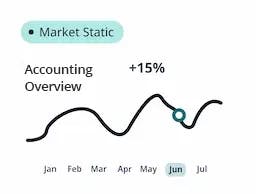
Admin
2024-01-16

Regarding managing customer data, financial records, and other vital business information, your CRM and ERP software emerge as indispensable assets. This significance is underscored by the fact that more than 90% of organizations employing 11 or more staff members utilize a CRM. This very significance elucidates why the ERP systems market is anticipated to surpass $49.5 billion dollars within a few years.
Contact us?
However, integrating these two technologies becomes imperative to harness the complete potential of both platforms and ensure optimal functionality of your most crucial business processes. We will delve into the rationale behind this by highlighting several examples. But before delving further, let&pos;s take a succinct overview of each system.
Is CRM Integration with ERP Possible?
In brief, yes. Considering that a CRM handles customer interactions at the forefront while an ERP oversees business processes in the background, it becomes vital to integrate these two systems through an application integration approach. This integration ensures an accurate portrayal of customer information post-order placement. This encompasses purchase history, shipping and billing details, financial information, and supply chain management tools.
Definitions of CRM and ERP
A CRM serves as the foundational technology for engaging with customers. It basically oversee customer interactions, and managing business processes of the customer lifecycle. On the other hand, an ERP software optimizes essential business functions tied to revenue, involving sales, marketing, and supply chain management (SCM). Although ERP is frequently equated with the financial system, including accounting, invoicing, and financial reporting, it can also include supplementary modules. These modules include business intelligence (BI), CRM, material requirements planning (MRP), and human resource planning.
Both CRM and ERP play host to data crucial for a business's advancement and triumph. Historically, the data within each system has remained isolated, lacking easy accessibility or automated sharing with the other application.
The Value of Integration
Integrating data between CRM and ERP systems offers substantial benefits. For example, sales representatives with prompt access to available inventory can expedite sales orders. Thus, they provide customers with an enhanced purchasing experience.
The Integration Challenge
ERP and CRM systems tend to operate in isolation due to their distinct architectures, complicating integration efforts. Attempts to establish seamless connectivity often lead to bespoke point-to-point integration. This approach, however, proves fragile, expensive, and challenging to uphold. With point-to-point connections, developers are burdened with connectivity management and implementation of changes. Furthermore, alterations impact the entire system, leaving room for errors. While these point-to-point integrations offer a temporary solution, they become increasingly convoluted as businesses expand.
Another approach businesses employ is the manual "swivel chair" data entry, requiring individuals to manually retrieve data from one system and input it into another. This method is susceptible to errors, time-consuming, and resource-intensive. Some businesses simplify this task using data loaders. However, an alternative solution is necessary when dealing with CRM systems from vendors other than Elate Software.
When two disparate systems fail to communicate, tracking all customer interactions and accessing information through a single interface becomes exceedingly challenging. Sales representatives spend valuable time toggling between applications to construct a comprehensive view of their customers. Consequently it slows down the sales process.
Due to the inefficiencies stemming from a lack of integration, businesses necessitate a robust CRM and ERP integration solution to streamline their operational workflows.
Advantages of ERP and CRM Integration
At a higher level, the integration of ERP and CRM brings about the eradication of data silos between sales and finance departments. This integration facilitates an easier avoidance of human errors by your employees. Thus, it empowers sales representatives and accounts receivable specialists to dedicate more attention to strategic and essential business tasks.
Now, let's delve deeper into these benefits, along with others.
Elimination of Data Silos
Data silos occur when information is confined within specific applications, restricting access for employees who lack entry to those applications. In the context of segregated CRM and ERP applications, this situation can lead to instances where sales representatives or finance personnel need to request data from each other. Even it can make it worse by remaining oblivious to the existence of certain data.
By establishing a seamless connection between these two systems, these silos are inherently dismantled. Finally, it eradicates the adverse consequences they previously entailed.
Mitigation of Costly Errors
When these applications function independently, employees must manually duplicate data from one system to the other. This manual task is prone to errors, some of which can inflict substantial damage on your business. Examples encompass adding a sales order to the wrong client in your ERP, creating a case for an incorrect client in your CRM, or inaccurately updating product inventory in your CRM.
Synchronizing data between the applications empowers your team to sidestep data entry tasks, substantially enhancing data accuracy and currency within your CRM and ERP software.
Enhance Employee Productivity
As employees in both sales and finance are freed from the time-consuming task of navigating between applications and manually entering redundant data, they can redirect their efforts towards strategic, business-critical endeavors that hold greater value to them.
For sales representatives, this translates into the ability to craft more personalized emails to nurture leads. Therefore, it can then devise strategies to re-engage prospects who have become unresponsive. Meanwhile, for accounts receivable personnel, this entails responding more promptly and thoughtfully to billing inquiries from key clients and generating reports that contribute to more informed managerial decisions.
Amplify Sales
The integration of your CRM and ERP software substantially diminishes the need for manual and monotonous tasks for your sales representatives. It enables them to concentrate on activities that drive deal closures. This approach not only empowers your organization with a competitive edge but also addresses the fact that the average representative dedicates a mere 34% of their time to actual selling.
Enhance Order Fulfillment Efficiency
The process of order fulfillment often necessitates close collaboration among your sales, finance, and operations teams. You can synchronize your CRM-based sales forecasts with your ERP software to bolster their collaborative efforts. This integration allows your operations and finance teams to manage inventory and allocate resources over time more effectively. Also, it helps in scheduling a specific number of employees in the data warehouse during a given week. Furthermore, by harmonizing order statuses between the two systems, your sales representatives can readily track orders and provide precise updates to clients as required.
Provide Sales Guidelines
Essential product information often resides within your ERP software. It simply encompasses details like product availability and the designated price (or price range).
Integrating your CRM and ERP systems makes this crucial information readily accessible to sales representatives. Also, it virtually ensures that they offer products only when they are in stock (or soon to be available) and at the appropriate price point.
The last thoughts
The integration of your CRM and ERP platforms has the potential to elevate your business to new heights. The key to enduring success lies in identifying the right integration platform, one that facilitates a straightforward and seamless integration process.
Elate Software, recognized as a premier ERP Integration Tool, offers the simplest solution for connecting CRM and ERP platforms. Elate's ERP and CRM integration can be achieved through an intuitive, user-friendly, efficient drag-and-drop interface, contributing to streamlined integration and accelerated closure of your sales cycle.
Embark on your journey with Elate ERP today.
Latest News
From Our blog and Event fanpage




